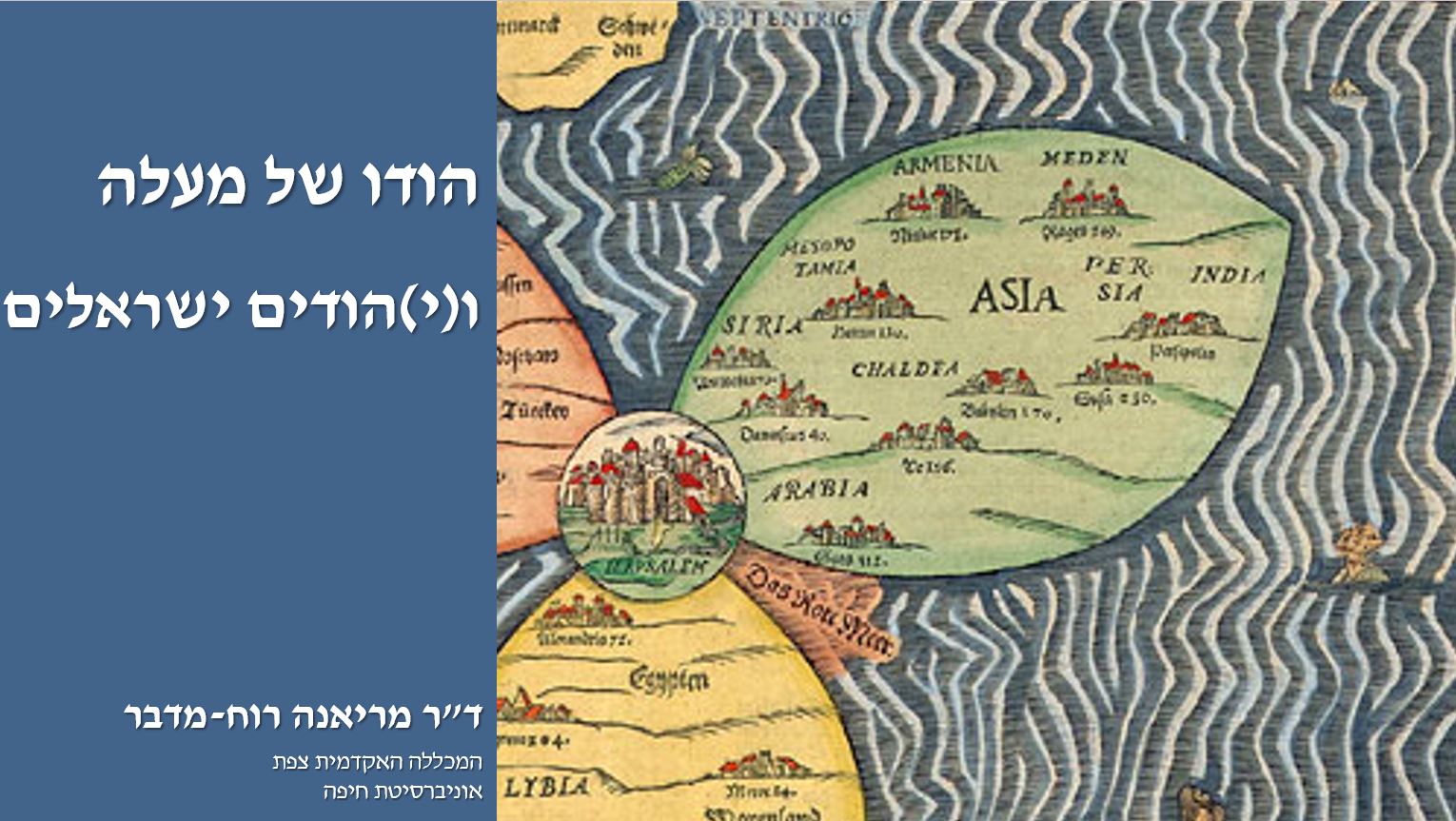Why and what for does the contemporary Jew needs India? How does India help Jews find spiritual meaning in their lives? What helps rehabilitate Israelis’ poor relationship with their spiritual/religious Jewish identity?
This lecture depicts the special attraction of Jewish Israelis to spiritual journeys in India, and the process they go through following these journeys in their relation to Jewish tradition.
This lecture is a part of a research project which thus far yielded two publications – in Hebrew and English (see links below).
It was deliverd in the 3rd Jewish-Asian conference, held at University of Haifa at 2015, and was included in a session on the subject “Jewish renewal’s intersection with Asia”.
Abstract
Mircea Eliade had prophecied that the West will be redeemed in it’s encounter with the Orient. Nowadays, many believe this actually has been happening – a plentitude of current phenomena indicate that the Orient breaks the Westerners’ spiritual thirst, featuring a major part in the vibrant field of New Age spiritualities. Many Israelis are included among those Westerners. Spiritual journeys to the Orient, in the search of meaning, identity and way of life, endow Israelis with the experience of discovering the answers for Life’s grand questions.
A surprising epilogue for many of those spiritual quests of Jewish Israelis in the Far Orient turns out to be a return and renewed adoption of Jewish tradition. Secular Israelis, who had found no interest in spiritual issues, nor in their ethnic (born) tradition and its spiritual aspects, do find themselves after those journeys in a spiritual path, sometimes even followed by a Jewish spiritual path. The question arises: why did those Jewish Israelis have had to travel as far as to the Far Orient only in order to return to the Jewish tradition and find it relevant to their spiritual quest? What is it in Eastern practices and doctrines or in the trip to the Far East that allows this reconnection with their self-born tradition, and why wasn’t this connection possible before the meeting with the East?
The proposed paper will present a critical discussion of the Easternization thesis, which concerns not only Israelis who are interested in the East – but the much wider phenomenon of the Westerners’ fascination of the East. The import and adoption of Eastern doctrines in the West is quite an ancient phenomenon, that had intensified towards the end of the 19th century, and received renewed impetus in the middle of the 20s century and the rise of the counterculture followed by the New Age movement.
Colin Campbell’s Easternization thesis, asserting that the West is going through a thorough and paradigmatic Easternization prosses, got the attention of various important critics, that will be surveyed in the paper. In light of this criticism, We’ll try to investigate the common intuition (both in public and scholarly discourses) as to the unique faculty of the Orient to win the hearts of Israelis – mainly secular ones – and to provide them with spiritual balm.
We shall analyse the contribution of the journey to the East in depth, and in fact we’ll argued that the East is not the real object of desire for Westerners and Israelis, rather an object for the projection of their unrest, desires and images. Indeed, as an object of this projection, the Orient does provide a spiritual answer, supplying with an imagined ideal alternative (or “significant Other”) for the Western/Israeli culture. We will argue that among Israeli New Age circles, Judaism is in fact going through an Exotization process – corresponding with the Orient – in order to fit the imagined model of the evolving spiritual discourse.
Author
Marianna Ruah-Midbar
Date
April 20th, 2015
Language
Hebrew
Academic/Non-academic
Academic item
Bibliographical citation
For a citation, it’s best to refer to one of the articles published in the framework of this research project. Links to those items – below.








